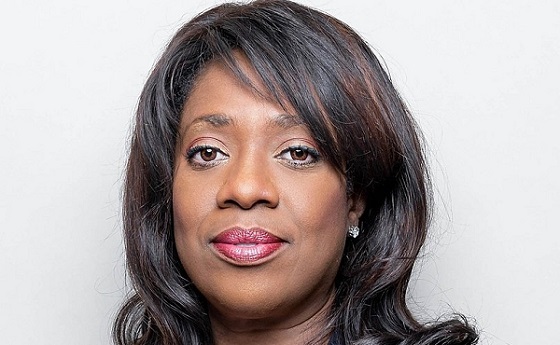Censorship Industrial Complex
Scotland’s crazy anti-hate law may be sign of things to come here

From the Frontier Centre for Public Policy
Scotland had 8,000 complaints in the first week. Is it likely that a similar avalanche of claims will result in Canada if C-63 becomes law?
Actually, there will probably be a lot more here.
For one thing, our population is many times the size of Scotland’s.
Some argue that Scotland’s new hate speech law is more draconian than Canada’s yet-to-be-enacted equivalent, Bill C-63. Others say this is not so — that portions of ’63’ are even greater threats to free speech than Scotland’s extreme new law.
Regardless of who wins in this radical experiment in mass censorship, one thing we can predict with certainty: Both laws will be a goldmine for the legal profession and a nightmare for anyone who has ever dared to write, say or broadcast anything controversial.
How? Well, in the first week that Scotland’s new hate legislation has been in force there has been an avalanche of new claims launched — 8,000, and counting. Every one of those claims will have to be defended by a person who believed that they were exercising their right of free speech.
Now, 8,000 of those people will be caught up in expensive, time consuming, and emotionally draining litigation. Their cases will mostly be heard by officials and judges who were appointed specifically because they shared the same views as the government that appointed them — the same government that felt the need to prosecute these 8,000 people.
That 8,000 surpassed the total number of hate crime allegations in Scotland for all of 2023. A projection is that there will be an estimated 416,000 cases for 2024 if this rate keeps up. The complaints have completely overwhelmed Scotland’s police.
The Scottish Police Federation’s David Threadgold said this about how the new law was being used by angry citizens with an axe to grind: “…the law was being “weaponised” by the public in order to settle personal grudges against fellow citizens or to wage political feuds, while suggesting that the government encouraging the public to report instances of ‘hate’ has clearly blown up in their face.”
We have already seen this Scottish law in action when J.K. Rowling, who is famous not only for her wonderful Harry Potter books, but more recently for stating what we knew as fact for the first few hundred thousand years or so of human history — namely that men are men, and women are women — famously reposted that claim and dared the Scottish police to charge her.
The police announced that she wouldn’t be charged — at least that particular police officer wouldn’t charge her at this particular time.
The other person who has been the subject of many of those 8,000 complaints is First Minister Humza Yousaf — the very man responsible for this monstrosity of a law. Yousaf is himself quite famous for complaining that Scotland has too many white people. Who knew?
That odd observation resulted in a world famous spat with none other than Elon Musk. The online slugfest basically took the form of each man accusing the other of being a racist. At times it looked more like a schoolyard fight.
That a national leader seriously feels that the sledgehammer of the criminal law must be used to sort out such cat fights between citizens is rather alarming.
But, in this regard, Yousaf and Trudeau are birds of a feather. Both are convinced that only “acceptable views” — namely the views they agree with — will be allowed, while “unacceptable views,” namely, those they don’t like, must be disappeared by the machinery of the state.
It should be explained at this point that Scotland’s new law, unlike our C-63, requires police to determine whether or not the person under complaint has “stirred up hatred.”
Bill C-63 has those “hate” complaints heard by the Human Rights Tribunal.
In both cases however, one person’s opinion will judge another person’s opinion. However, one person will be paid to perform this function, while the other person might become a criminal if their opinion fails a completely subjective test.
Scotland had 8,000 complaints in the first week. Is it likely that a similar avalanche of claims will result in Canada if C-63 becomes law?
Actually, there will probably be a lot more here.
For one thing, our population is many times the size of Scotland’s.
For another, C-63 allows people to make complaints anonymously if the tribunal says so. It also promises up to $50,000 per complaint. That’s a powerful motivator. That $50,000 doesn’t come from some magic bank, by the way. If you are the person complained about, it comes from you. And you might be required to fork over an additional $20,000 to the tribunal for their troubles.
I’m not sure if they will expect a tip..
Much has been written about C-63. Many knowledgeable Canadians have discussed in detail the hundreds of objections they can see with this Bill. Senior Canadian voices, such former Chief Justice Beverley McLachlin, and world famous author Margaret Atwood, have warned Canadians about this seriously flawed legislation.
But what no one has done — except for Trudeau apparatchiks — is to give any good reasons why Canada needs this legislation.
If Scotland’s projected number of complaints for 2024 is 416,000 and they have a population of less than six million, the projection for Canada would be into the millions of complaints. Even setting aside the obvious impossibility of paying for thousands of new tribunal adjudicators, staff, and the thousands of new lawyers required to help the million-plus people who are thrust into this hate complaint boondoggle, why would any serious government even wish such a thing on their citizens?
Do we not have a rather large bag of serious problems we must contend with?
We have a generation of young people, for example, who might never in their lives be able to afford a home of their own. How do we expect these young people to raise a future generation of Canadians without a home in which to raise them? Isn’t that a bigger problem than someone’s hurt feelings?
Another example… Trudeau has just noticed that we don’t seem to have an army anymore. Isn’t that a bigger problem than whether or not someone feels that they have been misgendered, or called nasty names?
There is a list, as long as the longest arm, of very real problems that need urgent attention. Why are we wasting time and money on the brainchild (yes, I use that term loosely) of a desperate prime minister and his few remaining fellow ideologues?
This legislation is totally unnecessary, and an appallingly disrespectful way to treat Canadians. We already have hate laws. We already have laws to protect children. C-63 is as useless as the tired apparatchiks pushing it.
We should definitely pay attention to what is happening in Scotland. It will be our fate if this perfectly awful Bill C-63 is not defeated.
Brian Giesbrecht, retired judge, is a Senior Fellow at the Frontier Centre for Public Policy
Alberta
Alberta bill would protect freedom of expression for doctors, nurses, other professionals

From LifeSiteNews
‘Peterson’s law,’ named for Canadian psychologist Jordan Peterson, was introduced by Alberta Premier Danielle Smith.
Alberta’s Conservative government introduced a new law that will set “clear expectations” for professional regulatory bodies to respect freedom of speech on social media and online for doctors, nurses, engineers, and other professionals.
The new law, named “Peterson’s law” after Canadian psychologist Jordan Peterson, who was canceled by his regulatory body, was introduced Thursday by Alberta Premier Danielle Smith.
“Professionals should never fear losing their license or career because of a social media post, an interview, or a personal opinion expressed on their own time,” Smith said in a press release sent to media and LifeSiteNews.
“Alberta’s government is restoring fairness and neutrality so regulators focus on competence and ethics, not policing beliefs. Every Albertan has the right to speak freely without ideological enforcement or intimidation, and this legislation makes that protection real.”
The law, known as Bill 13, the Regulated Professions Neutrality Act, will “set clear expectations for professional regulatory bodies to ensure professionals’ right to free expression is protected.”
According to the government, the new law will “Limit professional regulatory bodies from disciplining professionals for expressive off-duty conduct, except in specific circumstances such as threats of physical violence or a criminal conviction.”
It will also restrict mandatory training “unrelated to competence or ethics, such as diversity, equity, and inclusion training.”
Bill 13, once it becomes law, which is all but guaranteed as Smith’s United Conservative Party (UCP) holds a majority, will also “create principles of neutrality that prohibit professional regulatory bodies from assigning value, blame or different treatment to individuals based on personally held views or political beliefs.”
As reported by LifeSiteNews, Peterson has been embattled with the College of Psychologists of Ontario (CPO) after it mandated he undergo social media “training” to keep his license following posts he made on X, formerly Twitter, criticizing Trudeau and LGBT activists.
He recently noted how the CPO offered him a deal to “be bought,” in which the legal fees owed to them after losing his court challenge could be waived but only if he agreed to quit his job as a psychologist.
Early this year, LifeSiteNews reported that the CPO had selected Peterson’s “re-education coach” for having publicly opposed the LGBT agenda.
The Alberta government directly referenced Peterson’s (who is from Alberta originally) plight with the CPO, noting “the disciplinary proceedings against Dr. Jordan Peterson by the College of Psychologists of Ontario, demonstrate how regulatory bodies can extend their reach into personal expression rather than professional competence.”
“Similar cases involving nurses, engineers and other professionals revealed a growing pattern: individuals facing investigations, penalties or compulsory ideological training for off-duty expressive conduct. These incidents became a catalyst, confirming the need for clear legislative boundaries that protect free expression while preserving professional standards.”
Alberta Minister of Justice and Attorney General Mickey Amery said regarding Bill 13 that the new law makes that protection of professionals “real and holds professional regulatory bodies to a clear standard.”
Last year, Peterson formally announced his departure from Canada in favor of moving to the United States, saying his birth nation has become a “totalitarian hell hole.”
Censorship Industrial Complex
Move over Soviet Russia: UK Police Make 10,000 Arrests Over “Offensive” Online Speech

In a nation where 90 percent of crimes go unsolved, the real emergency seems to be someone being offensive online.
|
|
-

 COVID-1916 hours ago
COVID-1916 hours agoNew report warns Ottawa’s ‘nudge’ unit erodes democracy and public trust
-

 Great Reset2 days ago
Great Reset2 days agoEXCLUSIVE: A Provincial RCMP Veterans’ Association IS TARGETING VETERANS with Euthanasia
-

 Health2 days ago
Health2 days agoDisabled Canadians petition Parliament to reverse MAiD for non-terminal conditions
-

 Daily Caller2 days ago
Daily Caller2 days agoSpreading Sedition? Media Defends Democrats Calling On Soldiers And Officers To Defy Chain Of Command
-

 Crime1 day ago
Crime1 day agoHow Global Organized Crime Took Root In Canada
-

 Digital ID2 days ago
Digital ID2 days agoLeslyn Lewis urges fellow MPs to oppose Liberal push for mandatory digital IDs
-

 Business2 days ago
Business2 days agoThe Payout Path For Indigenous Claims Is Now National Policy
-

 Energy1 day ago
Energy1 day agoExpanding Canadian energy production could help lower global emissions







